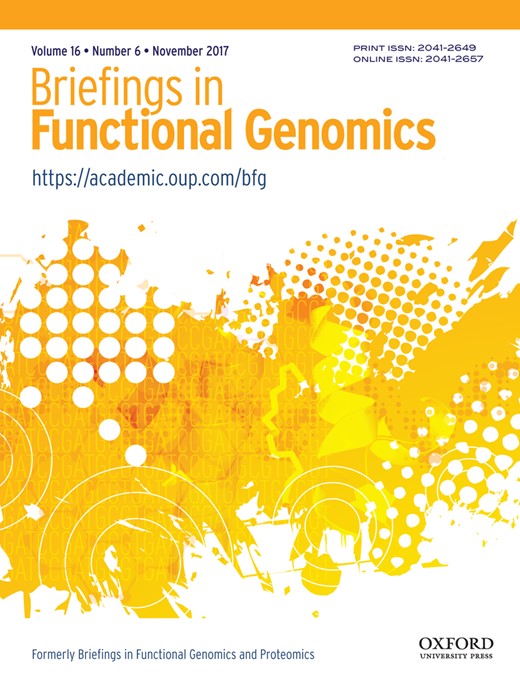-
PDF
- Split View
-
Views
-
Cite
Cite
Greg Elgar, Editorial, Briefings in Functional Genomics, Volume 16, Issue 6, November 2017, Page 319, https://doi.org/10.1093/bfgp/elx039
Close - Share Icon Share
Briefings in Functional Genomics will move to online-only publication from January 2018; the November 2017 edition will be the last printed issue. The Editors and publishers of Briefings in Functional Genomics have taken this decision in light of the extensive online usage of the journal and that fact that we are now supplying few print subscribers with copies of the journal.
Thousands of libraries and individuals around the world now have access to the online edition of Briefings in Functional Genomics. Through publication on the new Oxford Academic journals platform, the journal’s website is not only the most up-to-date and digitally enhanced it has ever been but it also provides a flexible, modern user interface that has driven readership increasingly online over the past few years. The online-only journal provides market-leading functionality to all users; none of which can be offered in the print environment. This includes guaranteed access to the most current versions of articles at all times (the Version of Record); immediate access to the most recently published content via the Advance Access feature; access to digital components of content (where appropriate) such as supplementary data, enhanced display of figures, videos, podcasts, continuing professional development content and reference linking, social media feeds, usage information and citation data and other metrics.
The Oxford Academic platform also offers a fully responsive design, which means you can access journal content wherever you are, on your phone, tablet or computer with the assurance that it is displayed in the most space-efficient and readable fashion.
Reader engagement with print text is difficult to measure with any kind of accuracy, whereas engagement with online journal articles and other digital elements (such as the home page, video content, supplementary data, etc.) can be tracked, reported and used to inform ongoing journal strategy. By moving Briefings in Functional Genomics fully online, we will have a more complete picture of reader engagement with the journal and that will help inform how we develop the journal in the future for the benefit of all readers and authors.
Finally, online-only journals are more environmentally friendly, eliminating the need for paper, shipping materials and transportation and thus significantly reducing the journal’s carbon footprint. Journal articles are available to you instantly on the day of publication, rather than you having to wait for printing and despatch to be completed.


